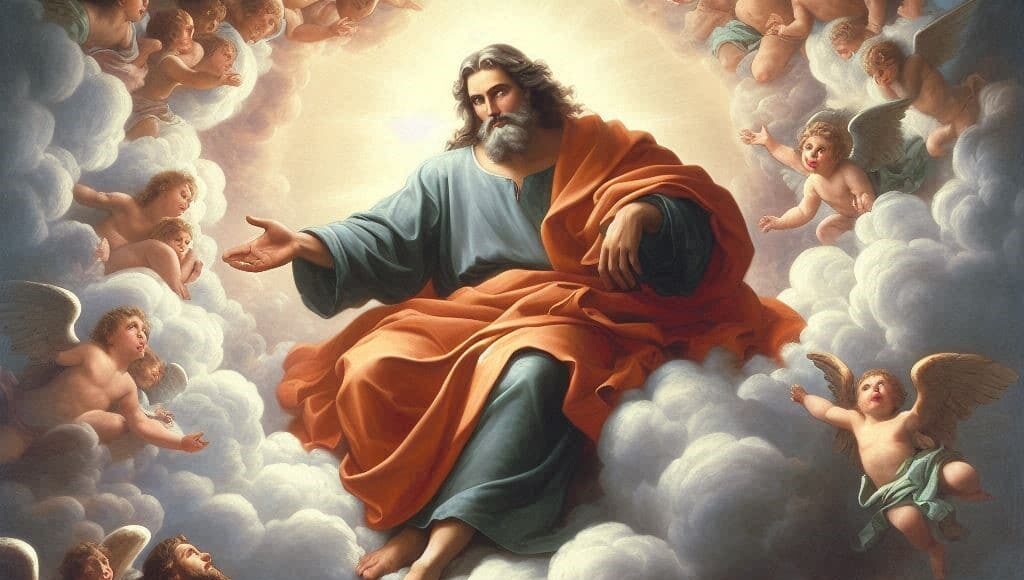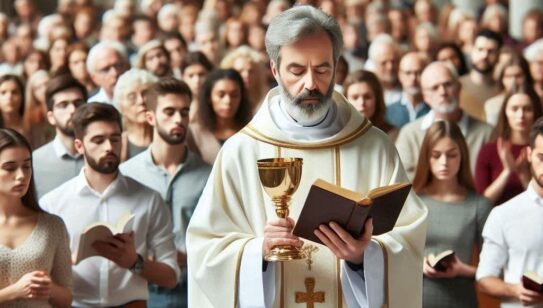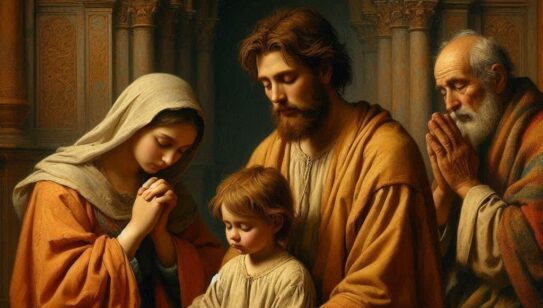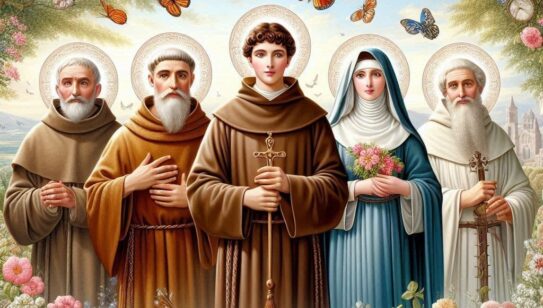The faith is a tapestry of profound beliefs and traditions that have stood the test of time. Originating from the teachings of Jesus Christ, it extends an invitation to explore a deeply rooted spiritual journey. We know the faith not only through sacred scriptures but also through the living tradition that breathes life into its doctrines and practices.
Embarking on the path to understanding the Catholic Church can be both enlightening and transformative. It invites individuals from all walks of life to contemplate the divine mysteries and embrace the Church’s mission to guide believers towards spiritual fulfillment and salvation.
How do we know it’s the true church?
The Catholic Church is considered the true church by many for its direct lineage to Saint Peter, whom Catholics believe was appointed by Jesus Christ as the first Pope. This historical continuity, combined with the Church’s adherence to apostolic teachings, provides a powerful argument for its authenticity.
Authority within the Church is a cornerstone of Catholic belief, with the Pope serving as the spiritual successor to Peter. The magisterium, or the Church’s teaching authority, ensures that doctrines remain consistent with the teachings of Christ and the Apostles.
The Catholic Church’s claim to be the true church is further strengthened by its role in compiling the Bible and its unwavering commitment to the unity of its followers under one faith and one baptism, as professed in the Nicene Creed.
What do Catholics believe?
Catholics embrace a rich tapestry of beliefs, including the Holy Trinity, the divinity of Jesus Christ, and the promise of life after death. Understanding the core beliefs of the Catholic Church is key to grasping the depth of its teachings.
Central to Catholicism is the concept of grace and the sacraments, rituals believed to bestow God’s grace upon believers. These sacraments, including baptism, the Eucharist, and reconciliation, are seen as both a sign and instrument of God’s love.
Devotion to the Virgin Mary and veneration of the saints also play an integral role in Catholic practice, providing models of holiness and intercessors in prayer.
How do I know that the Catholic Church is the one true church?
The question of the Catholic Church being the one true church is rooted in its historical foundation and claims of apostolic succession. Its unbroken lineage back to the Apostles is seen as evidence of its divine mandate.
Another compelling aspect is the Church’s comprehensive theological framework, which has been developed and refined through ecumenical councils and the works of Church Fathers over the centuries.
The significance of the sacraments in Catholicism also underscores the Church’s unique role in administering what Catholics consider to be the channels of God’s grace.
What are the core beliefs of the Catholic Church?
The core beliefs of the Catholic Church are encapsulated in the Nicene Creed, a statement of faith that affirms the doctrines of the Trinity, the Incarnation, and the Church’s one, holy, catholic, and apostolic nature.
Exploring Catholic doctrines and traditions reveals a commitment to the sanctity of life, social justice, and the moral teachings that are derived from the life and teachings of Jesus Christ.
Catholics also acknowledge the importance of both Scripture and Sacred Tradition as complementary authorities for faith and practice.
How are we saved according to Catholic teaching?
Catholic teaching holds that salvation is a gift from God, made possible through the sacrifice of Jesus Christ. It is received by faith and through the grace imparted by the sacraments.
Good works and adherence to the Church’s teachings are seen as responses to God’s grace, rather than earning salvation, which remains a free and unmerited gift.
The process of salvation is often described as a journey, with penance and reconciliation playing a vital role in the believer’s spiritual growth and return to God’s grace after sin.
What is the significance of the Eucharist in the Catholic faith?
The Eucharist, also known as Holy Communion, is the source and summit of Catholic life. Catholics believe that in the Eucharist, bread and wine become the true Body and Blood of Christ, a mystery known as transubstantiation.
Participation in the Eucharist not only commemorates the Last Supper but also unites believers with Christ and with one another, forming the Body of Christ, the Church.
How Catholic teachings guide daily life can be seen vividly in the centrality of the Eucharist, as it inspires Catholics to live out Christ’s commandment of love and service.
How does sacred tradition shape Catholic beliefs?
Sacred Tradition in Catholicism refers to the teachings that have been handed down through the centuries, beginning with the Apostles. These traditions inform and give context to the interpretation of Scripture.
The development of doctrines, such as the Assumption of Mary and the Immaculate Conception, are examples of how Sacred Tradition works in harmony with the Bible to articulate beliefs not explicitly stated in Scripture.
Tradition also encompasses the liturgy, prayers, and practices that have been a part of the Church’s life since the early centuries.
What role do saints play in Catholicism?
Saints in Catholicism are revered as heroes of faith who have led exemplary lives of virtue and holiness. They serve as role models and intercessors, with many Catholics seeking their prayers and assistance in times of need.
The process of canonization, by which the Church declares a person a saint, involves a rigorous examination of the individual’s life and miracles attributed to their intercession.
Devotions to saints, such as prayers and feast days, reflect the Catholic belief in the communion of saints—the spiritual solidarity between the living and the dead in Christ.
Frequently asked questions about Catholic beliefs
Where in the Bible does it say the Catholic Church is the one true church?
In the Bible, while the term “Catholic Church” is not directly used, there are passages that Catholics interpret as Jesus establishing His Church. For example, in Matthew 16:18-19, Jesus bestows authority upon Peter, which Catholics see as the foundation of the papacy and the Church’s authority.
Other scriptural references, such as in the Acts of the Apostles and the Epistles, demonstrate the early Church’s structure and unity, which Catholics believe is realized in the Catholic Church.
Is the Catholic Church the true faith?
Catholics affirm that the Catholic Church is the true faith based on its apostolic succession, adherence to the teachings of Christ, and the continuity of its doctrines and practices throughout history.
While recognizing elements of truth in other denominations, Catholics see the fullness of faith and the means of salvation as being uniquely present in the Catholic Church.
Where in the Bible does it say Jesus founded the Catholic Church?
While the New Testament does not explicitly state that Jesus founded the “Catholic Church,” Catholics interpret passages such as Matthew 16:18, where Jesus says to Peter, “You are Peter, and on this rock I will build my church,” as evidence of Jesus establishing the Church that would become known as the Catholic Church.
The term “catholic” means universal, and by the end of the second century, it was being used to describe the universality of the Church that Jesus founded.
What are the main beliefs of Catholics?
Catholics hold to several core beliefs, including the Trinity, the divinity of Jesus, the resurrection, and the presence of Christ in the Eucharist. Moral teachings, the importance of the Virgin Mary and the saints, and adherence to the Church’s magisterium are also central.
The Church’s social teachings, which advocate for the dignity of life, justice, and peace, form another important aspect of Catholic belief.
As we reflect on the depth and beauty of the Catholic faith, let us consider a video that delves into the heart of Catholic belief:
Conclusion
In conclusion, we know the Catholic faith as a journey that is both ancient and ever new. It beckons us to explore its sacred mysteries and to partake in its divine grace, all while living out the call to be a light unto the world.





